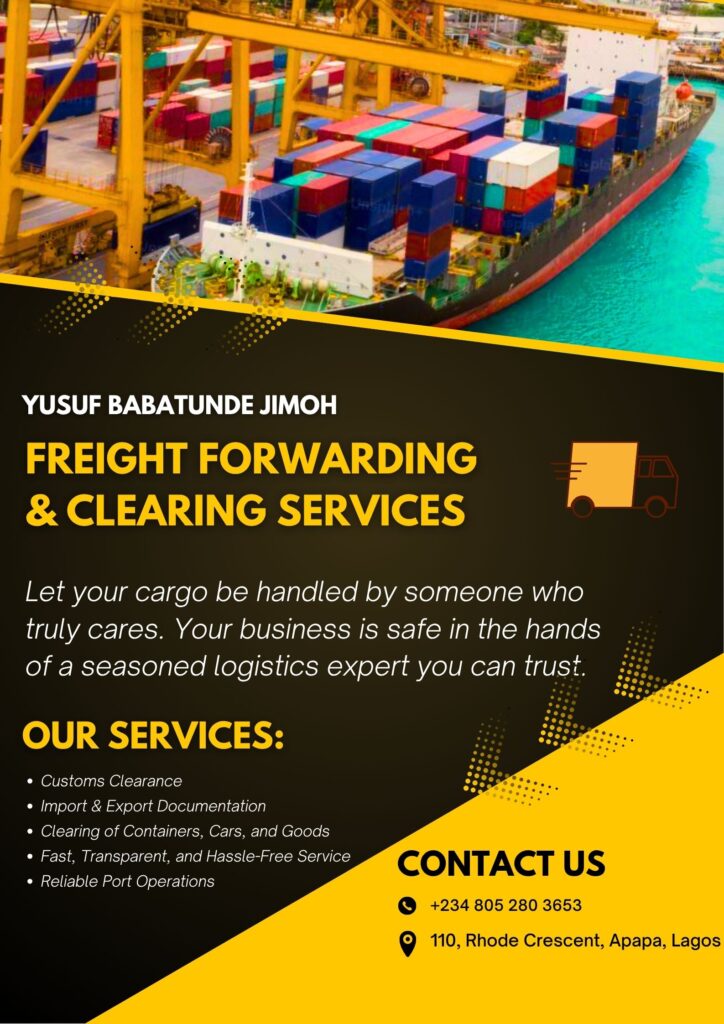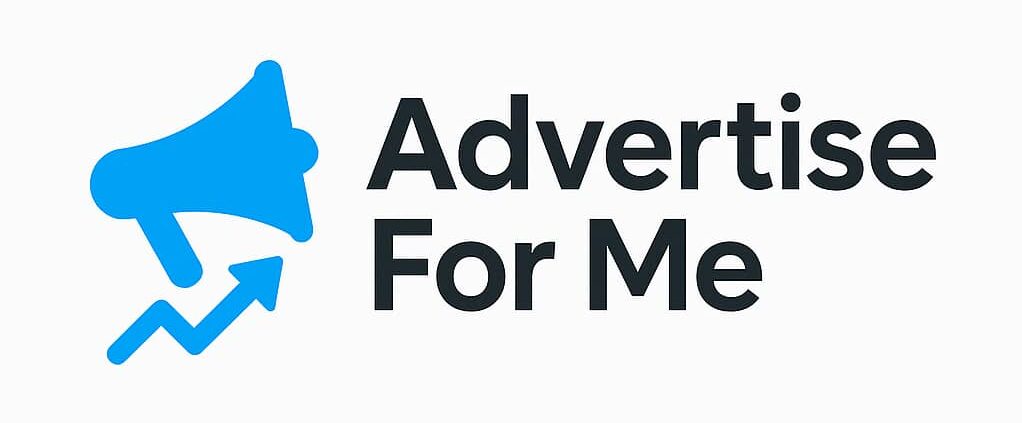Importing goods into Nigeria is more than just moving items from one country to another. It involves paperwork, approvals, and compliance with Nigerian regulations. One of the most important documents in this process is the Pre Arrival Assessment Report, better known as PAAR. If you skip it, your goods get stuck at the port. If you get it wrong, you pay more or lose the cargo. PAAR is not just a form. It’s the gate pass for all imports into Nigeria.
This is where you need someone who understands the system inside and out. Someone like Yusuf Babatunde Jimoh. He is a trusted freight forwarding and clearing expert based in Lagos. With years of experience and hundreds of successful clearances, Yusuf knows how to handle PAAR, SONCAP, customs valuation, and every part of the import process. His office is located at 110 Rhode Crescent, Apapa, Lagos, and you can reach him directly at +2348052803653.
This article explains PAAR and how it fits into Nigerian import law. You’ll learn what it means, who issues it, how it works, and why it matters. We’ll also cover SONCAP, NAFDAC, and the top goods Nigeria brings in every year. Whether you’re new to importing or looking to improve your process, this guide is a must-read.
Also, READ
SONCAP Activation Guide For Importers
NXP Meaning in Nigeria: What It Is and Why It Matters

What Does PAAR Stand For?
PAAR means Pre Arrival Assessment Report. It is issued by the Nigeria Customs Service. The report is part of the customs process for clearing goods. It helps Customs know what’s coming into the country and what duties to charge. It makes the clearing process faster and more accurate.
The process begins when an importer opens a Form M through a Nigerian bank. This form contains details like the invoice, product description, country of origin, and other key data. Once the bank uploads it, Customs checks the details. If everything looks good, Customs issues the PAAR. This report shows Customs has approved the shipment before the goods even land.
The PAAR carries the full value of the shipment, which is important for duty payments. Customs uses it to compare with the physical goods when they arrive. If there’s a mismatch, there could be delays or even seizure. That’s why getting PAAR right is not a favor. It’s a rule. If you want smooth clearance, start with a clean PAAR.
Who Issues PAAR In Nigeria?
Only the Nigeria Customs Service can issue a PAAR. No other agency, company, or person has the right to do it. But the process involves banks, importers, and sometimes other agencies like SON or NAFDAC. It starts with the importer submitting documents to a commercial bank. The bank then uploads the data to the Customs portal.
Customs reviews the invoice, product details, insurance, and Form M. They check if the product is allowed into Nigeria. They also look at the correct Harmonized System (HS) Code, product value, and country of origin. After the checks, Customs generates the PAAR. It is sent back to the bank and shared with the importer.
This PAAR report is required for every import into Nigeria. Without it, your goods will not clear. If the PAAR has errors, Customs may delay or reject the shipment. This is why it’s important to work with professionals who understand how to get it right the first time. Delays cost money. Errors cost even more.
What Is The Meaning Of PAAR In English?
In simple English, PAAR means Customs checks your shipment before it arrives. It is a report created in advance to help Customs prepare. It lists what you’re shipping, how much it’s worth, and where it’s coming from. It’s a way for Customs to stay ahead of incoming goods and stop fraud.
Think of it as a pre-check system. Instead of waiting for goods to arrive and start reviewing them then, Customs uses PAAR to get all the facts early. This helps them figure out the correct duties and taxes. It also helps them decide if the goods need extra checks or documents.
PAAR keeps the import process organized. Without it, Nigerian ports would be jammed with unapproved goods. PAAR adds structure. It makes it easier for Customs to detect under-declared or illegal imports. That’s why it’s a key part of doing business in Nigeria. If you want fast and legal clearance, PAAR is the first step.
What Is PAAR Imports In Nigeria?
PAAR imports are shipments that come into Nigeria under the control of a valid PAAR. That means the importer submitted the Form M, got approval, and Customs issued the PAAR before the goods arrived. These imports move faster because they follow the correct process. They are also less likely to face penalties.
Importers who skip PAAR or try to cheat the system usually run into trouble. Customs may delay their shipments, ask for extra duties, or block the goods completely. PAAR acts like a green light. If you have it, your cargo goes through. If you don’t, you’re stuck at the port.
Almost every item that comes into Nigeria needs a PAAR. This includes electronics, food, chemicals, raw materials, machines, and even personal effects. PAAR imports show that the shipment is official, tracked, and cleared in advance. It also shows that the importer is playing by the rules.
What Is The Meaning Of PAAR In Nigeria?
In Nigeria, PAAR means legal clearance. It’s a report that makes your import official in the eyes of the Nigeria Customs Service. No PAAR means no clearance. That’s how important it is. Customs uses it to stop illegal goods, catch under-declared values, and protect local industries.
Every importer must pass through the PAAR process. This is not optional. The government set it up to bring order to the chaotic import system. Before PAAR was introduced, importers often brought goods without proper checks. That led to fraud, loss of revenue, and low product quality in the market.
Now, with PAAR in place, the system works better. Customs has a digital record of every shipment. Banks work with importers to ensure all documents are correct. This makes importation smoother and more transparent. In Nigeria, if you’re talking importation, you’re talking PAAR.
What Is Nigeria’s Largest Import?
Nigeria’s largest import by value is fuel and petroleum products. While Nigeria exports crude oil, it still imports refined fuel due to lack of local refining capacity. This makes petroleum one of the biggest imported goods every year.
After fuel, Nigeria also imports machinery, electrical equipment, vehicles, and industrial tools. These are needed to keep factories, construction, and transportation running. Other large imports include pharmaceuticals, plastics, chemicals, and food products like rice and wheat.
Many of these imports are essential for the economy. Nigeria does not produce enough of them locally. This makes the import process important to keep businesses moving. That’s why systems like PAAR and SONCAP exist. They help make sure only quality goods come in and proper duties are paid.
What Is The Full Meaning Of SONCAP?
SONCAP means Standards Organisation of Nigeria Conformity Assessment Program. It is a program run by SON, the body that checks product quality in Nigeria. If you are importing goods that affect safety or health, you must get SONCAP.
SONCAP works hand in hand with PAAR. Before your PAAR is approved, Customs checks if your goods need SONCAP. If yes, you must get a Product Certificate and SONCAP Certificate from SON. These prove that your goods meet Nigerian standards.
Without SONCAP, some products will not get a PAAR. And without PAAR, you cannot clear the goods. That’s how they link together. Items like electronics, toys, building materials, chemicals, and household tools usually need SONCAP. This keeps fake and low-quality products out of the country.
What Are The Highest Imports In Nigeria?
The highest imports in Nigeria include fuel, machinery, and electronics. These goods take up the largest part of Nigeria’s import bill each year. Despite being an oil-rich country, Nigeria still spends heavily on imported fuel due to poor refining systems.
Machinery and vehicles are also top imports. These are used in agriculture, construction, and industry. Without them, most businesses would not be able to function. Other key imports include food items like rice and wheat, as well as chemicals and raw materials.
Electronics like phones, computers, and household appliances also rank high. These are in high demand across cities and towns. Because of this, Nigeria has a strong market for importation, which makes the PAAR process critical. Every major import must go through the right steps, from SONCAP to PAAR, to avoid trouble at the ports.
Conclusion
PAAR is the heart of Nigeria’s import system. If you’re shipping anything into the country, you need it. It’s more than just paperwork. It’s a sign that your business is legal, your documents are complete, and your cargo will move without stress. From Form M to final clearance, PAAR connects every step of the process.
This is where experience matters. Yusuf Babatunde Jimoh is your go-to expert for PAAR, SONCAP, and full customs clearing. He helps businesses handle these processes quickly and correctly. You can reach him at +2348052803653 or visit his office at 110 Rhode Crescent, Apapa, Lagos. Save time, avoid penalties, and keep your imports moving.
Don’t gamble with customs clearance. Let the professionals handle it. With the right PAAR, your goods won’t just arrive. They’ll arrive ready to clear.

Leave a Reply